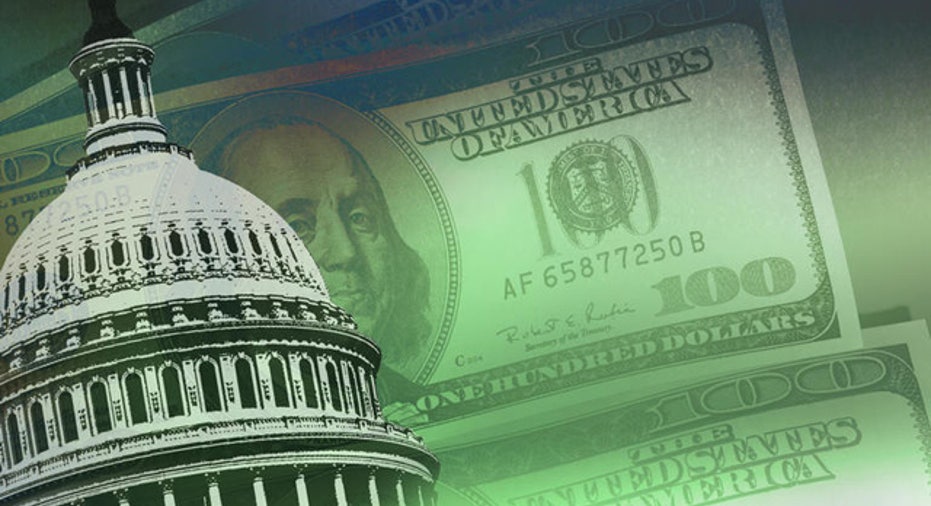Fiscal Cliff Could Force Hard Decisions

Depending on your point of view, if Congress and the newly re-elected Obama administration do nothing before the Jan. 1 deadline the looming fiscal cliff will result in at least one of the following nightmare scenarios.
Americans will face either unbearable tax increases that will bankrupt families and businesses alike, or ruthless spending cuts certain to leave our most vulnerable citizens abandoned and the country defenseless to its enemies. Or both.
Republicans have vowed to oppose any and all tax increases and to fight tooth and nail against the massive cuts to the defense budget demanded by sequestration, the fancy term for the mandated spending cuts set to take effect after Jan. 1 if Congress and the president can’t agree on a deal to reduce the U.S. deficit.
Democrats support tax increases on the wealthiest Americans but oppose cutting social services under sequestration.
In all likelihood these hypothetical doomsday scenarios will disappear with a last-minute deal, probably some version of a temporary spending bill that once again postpones the need for hard decisions on tax reform and government spending.
To some that’s a shame.
“Were on an unsustainable trend,” said Michael Shedlock, an investment advisor at Sitka Pacific Capital Management and a widely-read economic blogger.
“All of this is unsustainable and we keep embarking down roads we know have failed in the past,” Shedlock added. “What have we learned from the Internet bubble of the late 1990s and the housing and credit bubble of 2005-08? Nothing.”
In other words, the fiscal cliff, even if it causes another recession, as many economists have predicted, poses a real opportunity for the U.S. to get its teetering fiscal house in order.
“All of this is unsustainable and we keep embarking down roads we know have failed in the past.”
The fear is that a last-minute compromise that avoids the fiscal cliff but delays real action on tax and budget reform will merely perpetuate the deficit spending that has put the U.S. in a $16 trillion hole.
Current Fiscal Policies Worse Long-Term Than Fiscal Cliff
In a report issued earlier this month, the non-partisan Congressional Budget Office, while conceding that falling off the fiscal cliff would push the U.S. back into recession in 2013, said that leaving current tax and spending policies in place would be even more detrimental in the long run than sequestration.
According to the CBO, if “the policies that are currently in effect were kept in place indefinitely, a continued surge in federal debt during the rest of this decade and beyond would raise the risk of a fiscal crisis (in which the government would lose the ability to borrow money at affordable interest rates) and would eventually reduce the nation’s output and income below what would occur if the fiscal tightening was allowed to take place as currently set by law.”
If the tax increases and spending cuts take effect after Jan. 1 the CBO estimates the U.S. unemployment rate would rise to 9.1% by the fall of 2013, but then drop to 5.5% by 2020.
Here’s a closer look at how we got here and what’s at stake.
In August 2011, Congress and the president cut a last-minute deal that allowed the U.S. to raise its debt ceiling. The deal, which avoided a partial government shutdown and the possibility of the U.S. defaulting on some of its sovereign debt, created a “super committee” and charged it with trimming $1.5 trillion from the deficit over the next 10 years. The committee was given four months to accomplish that goal or sequestration -- mandated cuts -- would kick in in January 2013.
The committee failed, of course, and here we are, facing mandatory 9% across-the-board federal budget cuts and the expiration of a handful of tax cuts that the Tax Policy Center, a Washington, D.C.-based research center, estimates would raise taxes on American families by $3,500 in 2013.
Meanwhile, the budget cuts could slash as many as 2.5 million jobs in education, social services, and the aerospace and defense industries, to name just a few impacted sectors.
Tough Decisions Require Political Will, Courage
Not surprisingly, the potential cuts in defense spending have struck a nerve. But Shedlock, pointing to a recent study that showed the U.S. spends more on defense than the countries with the next 13 highest defense budgets combined, dismissed any suggestion that sequestration will leave the U.S. vulnerable to its enemies.
“Why does the U.S. have to be the global protector?” he asked. “How is it that the U.S. can afford to be the world’s policeman? We’re pulling out of Afghanistan and Iraq. Why do we need to increase defense spending?”
He answered his own question. Congress, he said, funds unnecessary defense projects for two reasons -- because the Pentagon wants them and because the projects often benefit their own districts and help them get re-elected.
Shedlock is hardly alone in suggesting that, for better or worse, a fall off the fiscal cliff might provide a much-needed wake up call, one that would place a sharp focus on the need for a long-term deficit reduction deal.
What's more, since the presidential election last week a handful of Democratic and Republican leaders have suggested that the impact of actual budget cuts, layoffs and tax increases could strengthen their respective bargaining positions in future budget negotiations.
But hard decisions on tax reform and spending cuts will require a level of courage and political will not encountered in any of the recent fiscal standoffs. And the smart money says neither trait is likely to emerge this time around either.



















